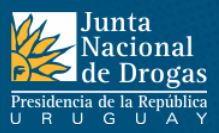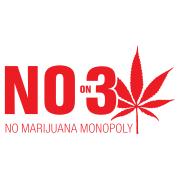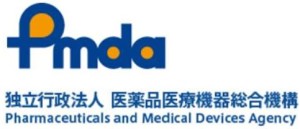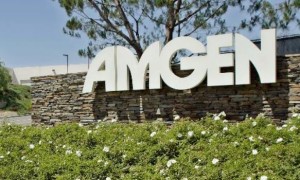- Three types of marijuana to hit Uruguayan pharmacies in 2016 (reuters.com)
Uruguayans will be able to choose from three varieties of state-sanctioned cannabis when marijuana starts being sold in pharmacies in the small South American country next year…Each variety will have different levels of...tetrahydrocannabinol and cannabidiol..."There will be three options with indications about the effects of each that point beginners toward starting with the lowest level" of THC...Uruguay became the first country to legalize the cultivation and distribution of marijuana in late 2013, aiming to wrest control of the trade from gangs while regulating and taxing its consumption…Authorities have developed traceable, genetically-distinct plants to ensure they do not leave Uruguay's borders or end up on the black market…The government estimates registered marijuana users will be able to buy the drug from pharmacies in mid-2016, when the country's two licensed producers start selling their first commercial load of about four tonnes…Authorities are also working with companies interested in exploring the possibility of exporting medical marijuana to the United States and Europe...
- Law for rare disease drugs needs revamping, researchers say (statnews.com)The Orphan Drug Act: Restoring the Mission to Rare Diseases.(req sub) (ncbi.nlm.nih.gov)
…the Orphan Drug Act was passed to give drug makers incentives to create medicines for rare diseases, which are defined as maladies that affect fewer than 200,000 people. The incentives include tax credits and seven years of marketing exclusivity. Since then, more than 400 orphan drugs have been approved by the Food and Drug Administration. Last year, though, 41 percent of all FDA approvals were for orphan drugs. And sales of orphan medicines, which carry high price tags, are forecast this year to total $107 billion…team of researchers argues that drug makers are exploiting loopholes that allow them to widen the market for such drugs and distorting the original purpose of the law. We spoke with Martin Makary, a cancer surgeon and professor of health policy at Johns Hopkins School of Medicine…
- OPA announces opposition to marijuana oligopoly ballot initiative (ohiopharmacists.org)Ohio voters weigh legalizing recreational marijuana use (reuters.com)
Ohio Pharmacists Association, the state organization representing Ohio’s pharmacist practitioners, announced their opposition to the Ohio Marijuana Legalization Initiative, Issue 3, which if passed which would place legalized marijuana and a protected oligopoly of select commercial marijuana growers into the Ohio Constitution…OPA is unconvinced that marijuana is appropriate or beneficial as a form of treatment for illness or disease. Further, OPA rejects any medical marijuana proposal that removes the function, counsel, and expertise of the prescriber and pharmacist from the prescription process, as Issue 3 does…“If there is going to be a legitimate discussion about marijuana policy or the possible effectiveness of marijuana for medical purposes, then let’s have it. But ‘Responsible Ohio’ bypasses the discussion altogether in an effort to benefit to a few wealthy investors. Issue 3 is a slap in the face to Ohioans who genuinely care about sensible marijuana policy.”
- NICE unconvinced of Duchenne drug benefit (pharmatimes.com)
Cost regulators for health technologies funded by the National Health Service in England and Wales have rejected a novel treatment for the genetic condition Duchenne Muscular Dsytrophy, seeking more data from the firm to confirm its benefit and justify its high cost...PTC Therapeutics’ Translarna (ataluren) is the first licensed treatment for DMD that addresses the loss of dystrophin, the underlying cause of the condition…NICE has recognised that the drug represents "an important development in the treatment of DMD and could potentially prolong the time before children have to use a wheelchair"…data…show that the therapy failed to achieve its main goal of significantly improving the distance achieved by patients in the standard six-minute walk test….the firm’s task of justifying the £220,256 ($340,000) per patient per year cost of the drug just got somewhat harder.
- Japan reaping the benefits from faster approval process (fiercepharmaasia.com)
European drugmakers say that at least as far as they are concerned, Japan is beginning to reap the benefits from its drug regulator's faster process of reviewing and approving drug applications…The head of the European Federation of Pharmaceutical Industries and Associations also applauded the changes in the "innovation premium" of Japan's Pharmaceutical and Medical Devices Agency pricing system that makes it more attractive to sell in Japan…EFPIA Japan Chairman Carsten Brunn said in an interview…that together the changes are also a boon to Japan, where 10% of the world's top 100 drugs that have not been available to patients are now entering the local market…The innovation premium system the PMDA adopted changed the system of setting price caps on drugs to ease its restrictions on innovative products…the Japanese patient would pay a higher price for those medicines…drugmakers now are conducting more clinical trials in Japan that in turn will result in more drug approvals. But, that would not have been enough incentive for… drugmakers…had the PMDA not speeded its approval process.
- FDA approves Adapt Pharma’s nasal spray for opioid overdose treatment (reuters.com)
Food and Drug Administration approved the first-ever nasal spray emergency treatment for opioid overdose…The spray, developed by privately held Adapt Pharma Ltd, uses naloxone, a drug used to treat opioid overdose for nearly 45 years but approved only in injectable forms…The treatment…is expected to have wide coverage under health insurance with affordable co-pays…Group purchasers, such as law enforcement, fire fighters, departments of health, local school districts, colleges and universities, and community-based organizations will be able to purchase the spray at a discounted price of $37.50 per 4 mg device…
- Amgen wins EU green light for first virus-based cancer drug (reuters.com)
..first-in-class drug from Amgen based on a tumour-killing virus was given a green light by European regulators…paving the way for its approval within a couple of months…The decision is a further milestone for a technology that has long fascinated scientists but has previously proved difficult to harness…The European Medicines Agency said its experts had recommended approval of Imlygic, also known as talimogene laherparepvec or "T-Vec", for treating melanoma, making it another option among several new drugs for the most deadly form of skin cancer. Imlygic uses a herpes simplex virus...which has been modified to only infect cancer cells. It is injected directly into tumours where it replicates and causes cancer cells to rupture and die, also stimulating a system-wide immune response.
- New law restores lost time for makers of some drugs (statnews.com)
President Obama has signed a law that resets approval dates for some medicines that contain controlled substances. The goal is to streamline the process used by the Drug Enforcement Agency to place prescription drugs that are controlled substances on a list of medicines for which distribution is restricted…the new law ensures that a company offering such medications will not effectively lose time from a five-year period under which it can exclusively market the drugs…Drug makers have griped they are often at a competitive disadvantage, since controlled substances must first be placed on the DEA list before they can reach pharmacies. Companies have complained the process is often lengthy and hampers their ability to take advantage of a five-year marketing exclusivity period following Food and Drug Administration approval during which generic competition is delayed…the Improving Regulatory Transparency for New Medical Therapies Act, would require the DEA to list a drug within 90 days after receiving notice from the FDA...
- China rejects 11 drug applications over inadequate trial data (newsdaily.com)
China has signaled a tougher stance on drug quality in the country’s sprawling pharmaceuticals industry by rejecting applications for 11 medicines with inadequate or suspect clinical data…China Food and Drug Administration said…that the move affected eight Chinese companies making generic drugs for heart problems, schizophrenia, pain, infections and other diseases…The crackdown follows a call in July for manufacturers to carry out their own internal investigations into trial data, which had already led to a number of voluntary recalls…The CFDA then carried out a series of on-site inspections…and discovered that clinical trial data in applications from eight companies for 11 drug products were incorrect or incomplete…“We have decided to withhold approval from these applications,”...
- Hainan Pharmaceutical
- Zhejiang Huahai Pharmaceutical
- Hebei Pharmaceutical
- Qingdao Bai Yang Pharmaceutical
- Zhejiang Angli Kang Pharmaceutical
- Hainan Kang Chi Pharmaceutical
- Guangdong Pharmaceutical
- Shandong Da Yinhai
- Drug Firms Buy Pricey Vouchers to Speed Products to Market (wsj.com)
There is a new price surge in the pharmaceutical industry—for a limited number of government-issued vouchers that drug makers… are buying to speed products to market…vouchers require the FDA to shorten its decision deadline to six months… Because companies can also sell the vouchers, a lucrative secondary market has emerged. AbbVie agreed in August to pay $350 million for a voucher from United Therapeutics Corp. ,which received it for developing a pediatric cancer treatment…the voucher program is attracting…criticism…These programs allow sponsors to ‘purchase’ a priority review at the expense of other important public health work in FDA’s portfolio… such as reviewing applications for drugs that treat more serious conditions...Adding to the escalating prices: the vouchers have a scarcity value because only seven have been issued…








